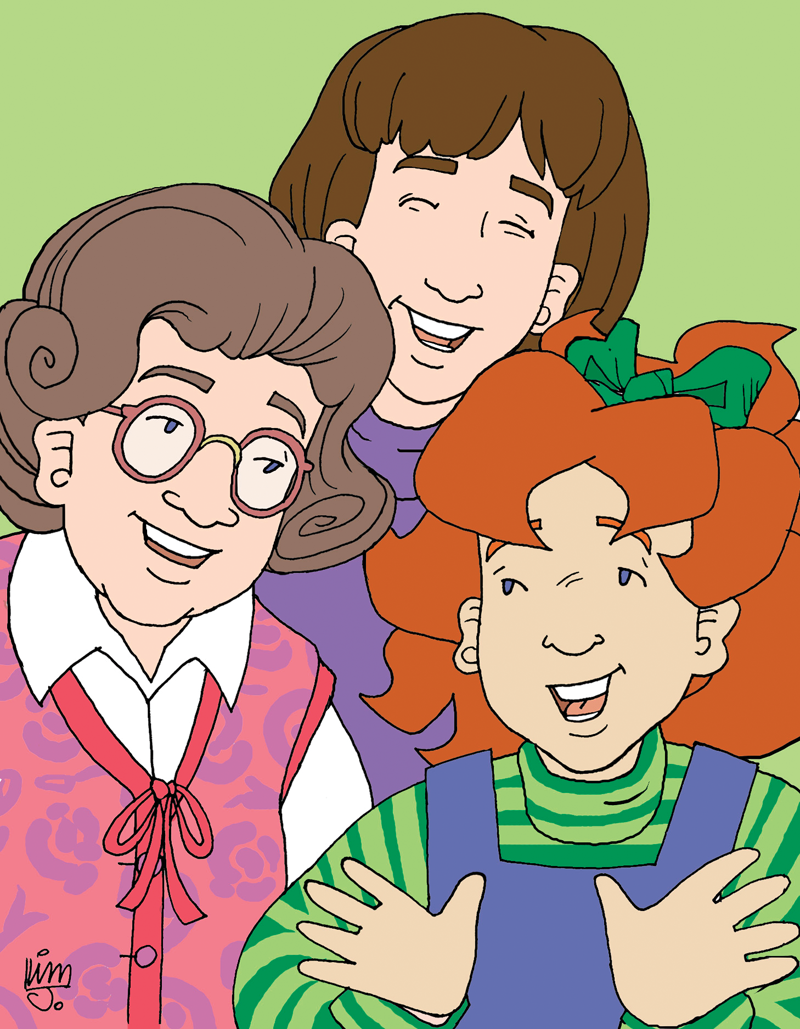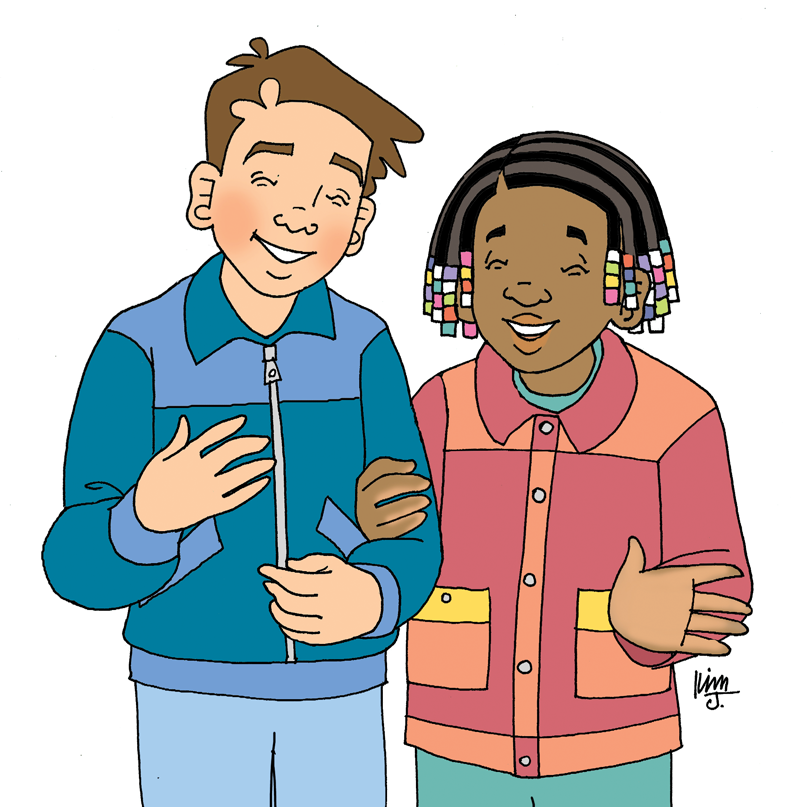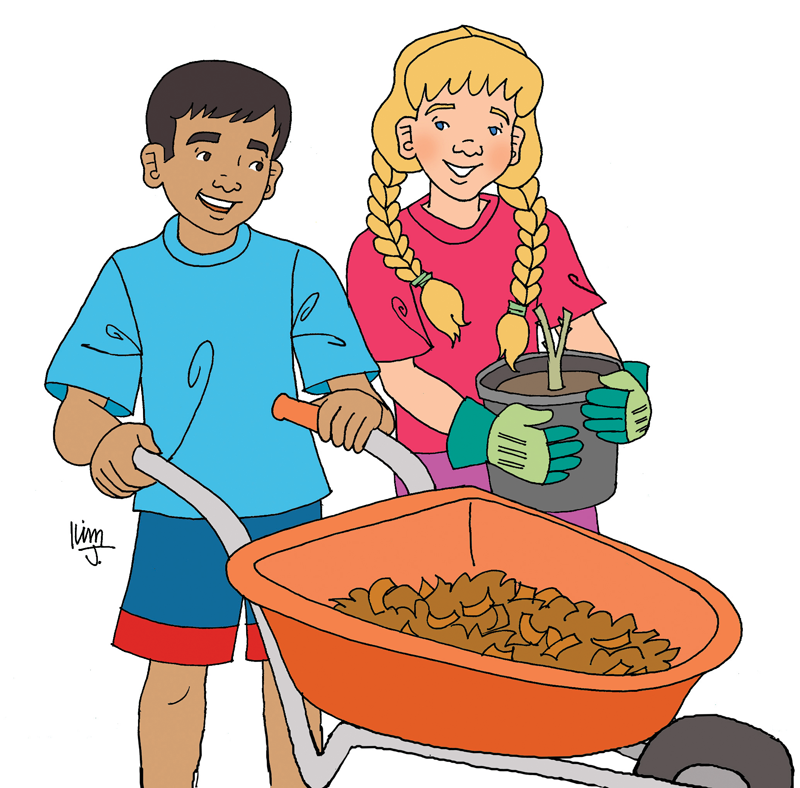
Cassava Cookies
“I’m so hungry,” Leona thought as she gazed wistfully out of the rough mission-house window to the garden. She leaned out and looked down toward the creek. She could see the twins coming up the path from the creek with buckets of water for the garden. The sound of their voices floated up to her.
“Why does it take so much water for things to grow?” Viola asked.
“It doesn’t seem to do much good anyway.” Vivian nodded. “Nothing seems to be growing but the pumpkins.”
“And we don’t even have to water the pumpkins,” Viola agreed, “since they were planted in a low spot down by the creek. But I would hate to have to eat just pumpkin every day and nothing else!”
The drought continued all that summer. Even with all the water that the four girls carried by the bucketful, only a few tomatoes and potatoes and some corn survived.
Since the lack of rain made the creeks and rivers lower than usual, the supply boats could not make it back into the jungle. That meant the Indians and the missionaries would have to survive on what they could catch or grow in the jungle.
Mother sill managed to put food on the table each night. If there were only three ears of corn, she would make corn soup or maybe tomato soup. The girls were getting tired of soup.
Then one night Mother cooked the last of the potatoes that had survived the drought. As she put the bowl of mashed potatoes on the table she said, “This will probably be the last of the garden for a while. I hope the pumpkins keep growing so we will have something to eat.”
Another month went by, and still there was no rain, and none of the big supply boats made it far enough up the river to bring anything to the missionaries.
“At least we still have pumpkins to eat,” Mother tried to comfort the girls at supper one night.
“I’m tired of pumpkin,” Vivian complained. “Baked pumpkin, boiled pumpkin, fried pumpkin, and pumpkin soup. Oh, I wish we could have something else to eat.”
“I never want to see another pumpkin as long as I live,” Viola added.
Mother planted some more seeds in the garden, although she knew it would take time before the plants came up. The girls got the job of carrying water again, which didn’t make any of them happy. Leona sloshed the water around in her bucket and glared as it spilled over her bare legs and dress.
“Hey, you’re supposed to carry the water, not swim in it,” Muriel teased.
Leona threw the bucket down and stalked into the house. They can just carry water themselves, she thought. She went into the kitchen and pulled down some of Mother’s cookbooks.
“Are you studying those cookbooks again, Leona?” Mother asked when she came into the kitchen a few hours later. “It doesn’t help to dream about food. It would be more helpful to go out and carry water for the garden.”
“But, Mother,” Leona protested. “Maybe I will find a different way to cook pumpkin. It would be nice to have a change once in a while.”
“Keep dreaming!” Mother called over her shoulder as she went back to the classroom of Indian students.
Leona thought about the Indians. The drought had been hard on them also. They were used to living in the jungles and growing their own food, but the drought had left them with only what fish they could catch and, of course, their cassava bread.
Leona thought about how the Indians made cassava bread. First, they pulled up the whole cassava plant, since they ate only the roots, but the roots were very poisonous; at least the liquid in them was poisonous. So the Indians would take the roots and grate them up into little pieces.
They made graters by sticking sharp little rocks onto a flat piece of wood with some tarlike stuff. The pointed ends of the rocks would stick up, and they could grate on them. When Dad explained to the girls that the sharp little rocks were diamonds, Leona was surprised. She thought they were ugly, not beautiful like the diamonds she had read about. Of course, they weren’t fancy diamonds, and the Indians didn’t polish them; they just dug them out of the ground.
After the Indians grated the cassava roots into little pieces, they put them into a woven bamboo tube. This tube had a handle on each end and was woven so that it stretched longer and thinner when it was pulled. The Indians packed in the pieces of cassava, and then two Indians pulled, one at each end. Slowly they squeezed out all the poisonous liquid. Leona had once seen some little chickens pecking on the ground where the Indians had been squeezing cassava. The chickens all died. The Indians tried to keep all the animals away from that area.
As soon as the Indians had squeezed all the liquid out, they took the dry stuff and spread handfuls of it on a flat rock over a fire, where it would stick together like a giant pancake over a foot around. When it was cooked on one side, they turned it over and cooked the other side. Then they hung the big cakes up to dry. They took the dried cakes on trips or stored them to eat later.
Leona turned back to the cookbooks. “Here are some different recipes for sweetened condensed milk that look interesting,” she thought. “I’ll see if there is anything here that I can change.”
Two weeks later an Indian came up the creek in his little paddle boat with a few supplies for the missionaries. Everyone rushed down to the creek to see what had come. The Indian handed Mother some mail and papers and then pulled out a case of sweetened condensed milk.
“Is that all of the supplies that made it through?” Mother asked. Her shoulders sagged as the Indian solemnly nodded.
Mother took the case and slowly walked back to the house.
Surprising even herself, Leona suddenly said, “Wait. I’ll make some cookies for all of us with some of this.”
“Cookies!” The twin’s eyes sparkled.
“Cookies?” Mother stared in astonishment. “How can you make cookies? We don’t have any sugar or flour or eggs.”
“That’s true,” Leona answered. “But I have an idea. I haven’t been studying all those cookbooks for nothing. You wait. I’ll make us all some cookies.”
Leona went out and traded with some of the older Indian women for five big cassava cakes. Taking the cassava bread into the kitchen, Leona broke it up into many tiny little pieces. She mixed in two cans of sweetened condensed milk, patted the mixture into cookie-size shapes, and put them on a little pan. She put the pan into their little wood cookstove.
At supper that evening there was the usual pumpkin soup, and then for dessert Leona brought out the cookies.
Dad was surprised to see anything that looked like cookies. “Where did you get anything to make cookies with?” he asked.
“Ask Leona!” Mother told him.
Leona explained how she had made the cookies from only cassava bread and sweetened condensed milk.
“They are cassava cookies,” piped up Viola.
“And very good cassava cookies they are,” Dad admitted. “Well, I guess with you four girls around, I won’t starve. Someone will always think up some new thing.”
After Dad read through the old mail and papers, he realized that the drought was worse than he had believed. The papers said it was the worst drought in 50 years. Dad knew that things wouldn’t start to get any better for at least a year or two. The family would have to practically live on only pumpkin all that time. As it was, Dad and Mother had lost almost 40 pounds each, and none of the girls had gained any weight in the last year. They had to do something.
Finally Dad decided to send Mother and the girls back to Georgetown. He wanted to finish a few more things at the mission, and then he would come out later. Mother hated to have the family split up, but she just didn’t know what else she could do.





